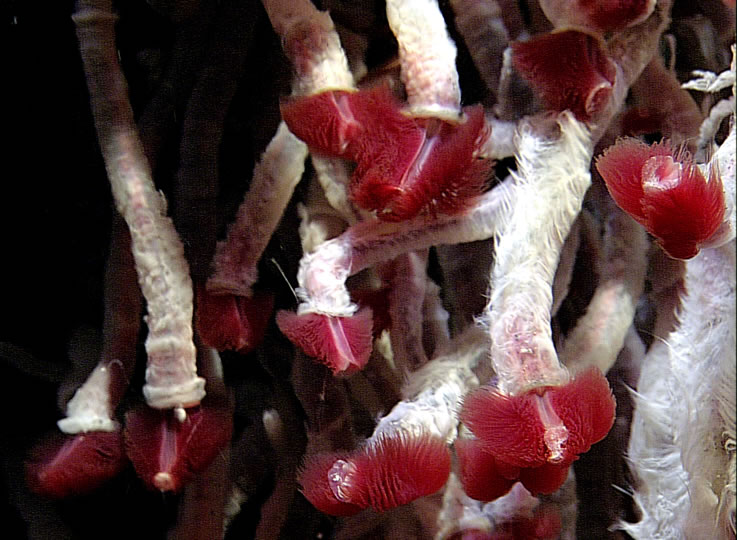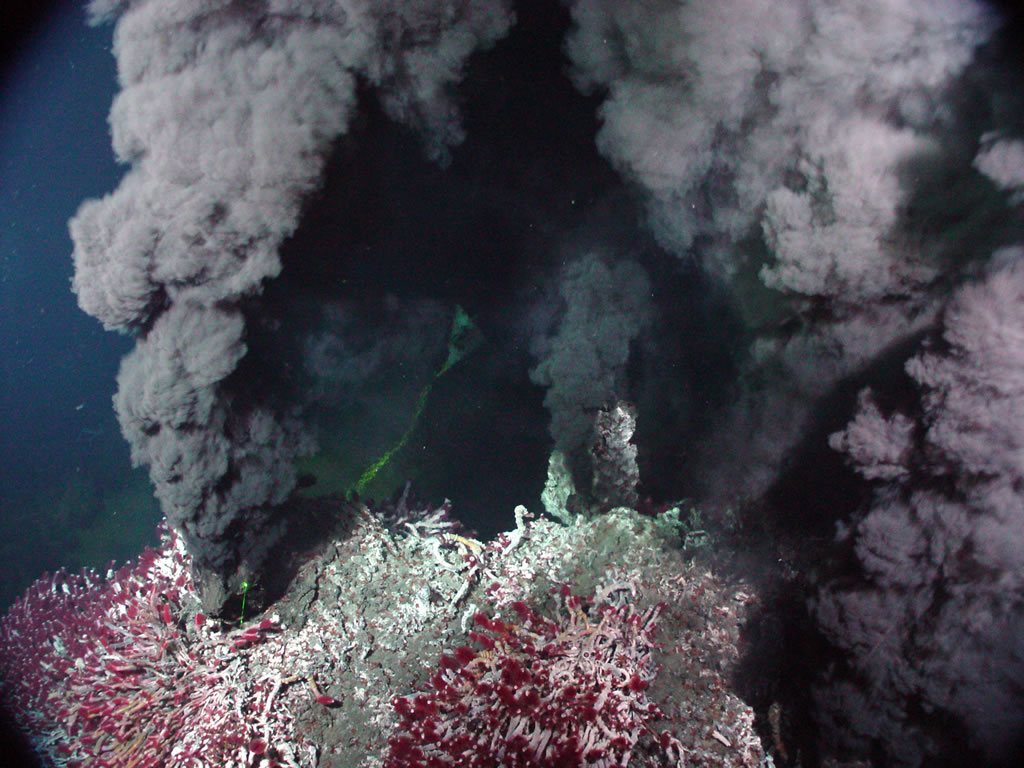Petrology and Marine Geology

Black Smokers host a very divers fauna often in a depth of more than 2'000 m and therefore in complete darkness. In the western Pacific, this fauna includes various types of tube worms, which have characteristic red plumes that contain haemoglobin (a protein in the red blood that transports oxygen).
Tube worms have no mouth or digestive tract. They live in symbiosis with bacteria that oxidize sulfide (H2S), which is released from the Black Smokers, turning it into usable nutrients for the worms. The bacteria, in turn, benefit because the worms deliver haemoglobin, which helps the bacteria to break down the sulfides so they can use it as an energy source.

Petrology studies the formation of rocks. Howsoever a rock is formed, during mountain building or on the ocean floor, its composition reflects the conditions at which it was formed and the time it needed to develop.
